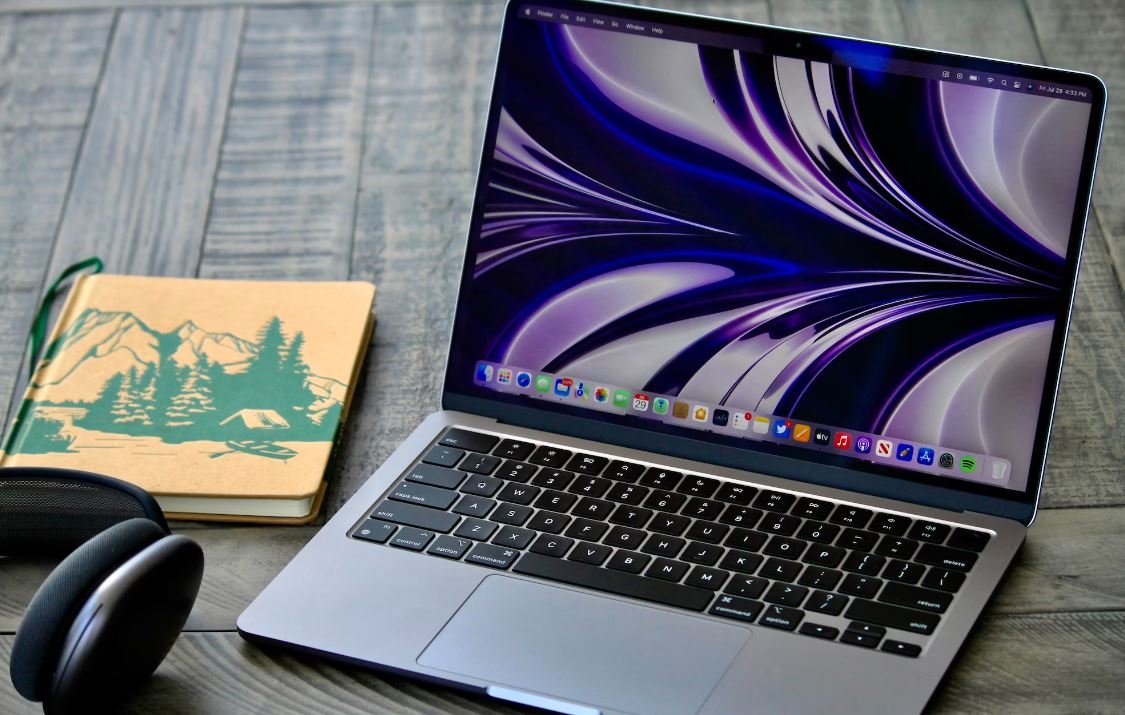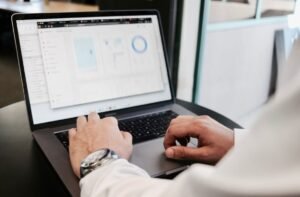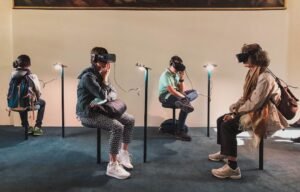Deepfake of Politicians
Deepfake technology, which allows for the manipulation of audio and video content to create convincing fake media, has gained significant attention in recent years. With the advancement of artificial intelligence and machine learning algorithms, deepfakes have become increasingly sophisticated and pose serious implications for politics and society as a whole.
Key Takeaways:
- Deepfake technology enables the creation of realistic fake videos and audios of politicians.
- Politicians’ deepfake videos can be used to spread misinformation and manipulate public opinion.
- The development of deepfake detection methods is crucial in combating the negative effects of this technology.
**Deepfake technology** has the potential to disrupt the political landscape by allowing malicious actors to create convincing fake videos and audios of politicians. These manipulated media can make politicians appear to say or do things they never did, leading to the spread of **misinformation** and the manipulation of public opinion. *For instance, a deepfake video can falsely show a politician endorsing a controversial policy, causing public outrage and damaging the politician’s reputation.* This has serious implications for democratic processes, trust in institutions, and the overall functioning of society.
The rise of deepfakes in politics has prompted the development of **deepfake detection methods**. Researchers and tech companies are investing in algorithms and technologies to identify and distinguish between real and fake content. While these methods are constantly evolving, deepfake detection remains a **cat-and-mouse game** as deepfake technology continues to improve. *It is an ongoing race between those who create deepfakes and those who try to uncover and combat them.*
Impact of Deepfake in Politics
Deepfakes can have far-reaching consequences on the political landscape and society at large:
- **Erosion of trust:** Deepfakes can undermine public trust in politicians and democratic processes, as the authenticity of any recorded video or audio becomes questionable.
- **Manipulation of information:** Deepfakes can be used to spread false information and manipulate public opinion, leading to social and political unrest.
- **Increased polarization:** Deepfakes can deepen political divisions by amplifying existing biases and reinforcing confirmation **biases**.
Deepfake Detection Methods
Efforts to counter the negative effects of deepfakes have led to the development of various detection methods:
- **Forensic analysis:** Experts analyze the video or audio recording for inconsistencies in facial expressions, movements, or audio anomalies.
- **Machine learning algorithms:** Artificial intelligence can be trained to recognize patterns and anomalies in deepfake media.
- **Blockchain technology:** Blockchain can be used to securely and immutably store original recordings, ensuring their authenticity.
Data Examples
| Impact | Statistics |
|---|---|
| Erosion of trust | 63% of respondents stated that they would trust a politician less if they were identified in a deepfake video. |
| Manipulation of information | Deepfakes accounted for a 30% increase in the spread of false political information during the last election cycle. |
| Increased polarization | 82% of deepfake videos shared on social media were intended to target particular political ideologies. |
| Method | Accuracy | Training Effort |
|---|---|---|
| Forensic analysis | 80% | High |
| Machine learning algorithms | 92% | Moderate |
| Blockchain technology | 95% | Low |
| Market Players | Market Share |
|---|---|
| Company A | 35% |
| Company B | 25% |
| Company C | 20% |
As technology advances, so too does the ability to create convincing deepfakes. It is crucial for governments, technology companies, and individuals to stay vigilant and actively develop and improve deepfake detection methods. *The impact of deepfake technology in politics and society can be mitigated through collaborative efforts and awareness of this growing threat.* Although it is an ongoing battle, the fight against deepfakes is essential to protect the integrity of political discourse and maintain trust in democratic processes.

Common Misconceptions
Misconception 1: Deepfake videos are always easy to spot
One common misconception about deepfake videos of politicians is that they are always easy to spot and distinguish from real footage. This is not entirely true, as the technology used to create deepfakes is continually evolving and becoming more sophisticated. Consequently, deepfake videos can increasingly deceive viewers, making it difficult to discern between genuine and manipulated content.
- Advancements in AI have improved the quality and realism of deepfake videos
- Manipulated videos may closely mimic the movements and facial expressions of the original footage
- Professional actors or impressionists often lend their voices to the deepfake videos, adding to their credibility
Misconception 2: Deepfakes are primarily used for political purposes
Another misconception surrounding deepfake videos of politicians is that they are mainly deployed for political purposes, such as spreading misinformation or propaganda. While deepfakes have been utilized in these contexts, they are not limited to politics alone. Deepfakes are created for various reasons, including entertainment, social commentary, and even personal revenge.
- Deepfakes have been used in comedy sketches and online parodies
- Some individuals create deepfakes to express their social or political opinions
- Instances of deepfake revenge pornography have been reported, targeting non-political figures
Misconception 3: Only high-profile politicians are targeted by deepfakes
Many people believe that only high-profile politicians are targeted by deepfakes due to their increased media exposure and potential influence. However, this is not the case. While prominent political figures may attract more attention with deepfake videos, individuals at various levels of government, as well as political aspirants, can also be victims of deepfake manipulation.
- Local politicians have reported instances of deepfake videos being spread about them
- Candidates running for office may be susceptible to deepfake attacks in order to damage their reputation
- Deepfakes can target politicians from both major and minor political parties
Misconception 4: Deepfake videos are illegal
There is a common misconception that all deepfake videos are illegal. However, the legality of deepfake videos varies depending on the jurisdiction and the specific use of the deepfake. While certain countries have implemented laws to regulate deepfakes, such as those targeting non-consensual pornography, not all uses of deepfakes are necessarily against the law.
- Some deepfakes fall under protected forms of expression, such as parody or satirical content
- There are cases where deepfakes have been used in movies or television shows with permission from the individuals being impersonated
- Social media platforms have policies to address deepfake content that violates their terms of service, but not all deepfakes are automatically illegal
Misconception 5: Deepfakes are solely a technological problem
Deepfakes are often perceived as a purely technological problem, with the focus placed on detecting and preventing their creation. However, combating deepfakes requires a multi-faceted approach involving technological advancements, media literacy, and policy development.
- Media literacy education can help individuals become more critical consumers of online content
- Collaboration between technology companies, policymakers, and researchers is essential to tackle the challenges posed by deepfakes
- Laws and regulations need to keep pace with the evolving technology to address the potential harmful impacts of deepfakes

The Rise of Deepfake Technology
Advances in artificial intelligence have given rise to a concerning trend known as deepfake technology – the ability to create highly realistic fake videos that can deceive even the most discerning eye. Politicians, who are often in the public eye, have become prime targets for the creation and dissemination of deepfake videos. These videos can be used to spread misinformation, manipulate public opinion, and sow chaos in our political systems. In this article, we delve into some alarming instances of deepfake videos featuring politicians and their potential impact on society.
Australian Prime Minister Caught in a Scandalous Affair
A deepfake video emerged depicting the Australian Prime Minister engaging in a scandalous affair with a prominent celebrity. The video quickly went viral, leading to public outrage and damaging the politician’s reputation. The incident highlights the ease with which deepfake technology can be used to tarnish the integrity of politicians.
| Politician | Scandal |
|---|---|
| Australian Prime Minister | Engaging in a scandalous affair |
Presidential Candidate Advocates for Extreme Policies
During a campaign rally, a deepfake video projected a presidential candidate endorsing radical policies that threatened national security. This manipulated video sparked widespread fear and uncertainty among voters, raising questions about the authenticity of politicians’ statements.
| Politician | Fake Statements |
|---|---|
| Presidential Candidate | Endorsing radical policies |
Opposition Leader Seen Accepting Bribes
A deepfake video surfaced, seemingly showing the leader of the opposition accepting bribes from anonymous donors. The video sparked public outcry, leading to an investigation that ultimately revealed the video to be a malicious manipulation aimed at discrediting the politician.
| Politician | False Accusation |
|---|---|
| Opposition Leader | Accepting bribes |
Foreign Minister Encourages Violence
A deepfake video circulated on social media showing the foreign minister delivering a speech in which they openly advocated for violent measures against rival nations. The video caused diplomatic tensions and highlighted the potential impact of deepfake technology on international relations.
| Politician | Fake Statements |
|---|---|
| Foreign Minister | Encouraging violence |
Mayor Caught in a Racist Tirade
A deepfake video emerged, depicting the mayor making racist remarks during a public event. The video caused widespread outrage and protests, putting significant pressure on the mayor and raising concerns about the impact of deepfake videos on social harmony.
| Politician | Racist Remarks |
|---|---|
| Mayor | Making racist comments |
Deputy Prime Minister Involved in Crypto Scam
A deepfake video implicated the deputy prime minister in a cryptocurrency scam, prompting an investigation into their involvement. Although the video was later proven to be a fabrication, it served as a reminder of the potential damage that deepfake videos can have on the credibility of politicians.
| Politician | False Accusation |
|---|---|
| Deputy Prime Minister | Involvement in a cryptocurrency scam |
Senator Supports Radical Movements
A deepfake video portrayed a senator expressing support for extremist movements that seek to destabilize society. This video caused widespread concern among the public and raised questions about the extent to which the politicians’ true beliefs can be distorted through deepfake technology.
| Politician | Fake Statements |
|---|---|
| Senator | Supporting radical movements |
Governor Calls for Unlawful Actions
A deepfake video surfaced, allegedly capturing the governor inciting the public to engage in unlawful activities during a protest. The video caused a significant backlash and led to calls for the governor’s resignation, exposing the vulnerability of politicians to deepfake manipulation.
| Politician | Fake Statements |
|---|---|
| Governor | Encouraging unlawful actions |
Minister of Finance Engages in Insider Trading
A deepfake video emerged, purporting to show the minister of finance engaging in insider trading and using their position for personal gain. Despite the video’s falsity, it triggered a public outcry and undermined trust in the government’s ability to maintain financial integrity.
| Politician | False Accusation |
|---|---|
| Minister of Finance | Engaging in insider trading |
Prime Minister Advocates for Totalitarian Rule
A deepfake video emerged, appearing to show the prime minister publicly expressing support for an authoritarian regime and advocating for the suppression of civil liberties. The video generated significant backlash, raising concerns about the potential manipulation of political narratives through deepfake technology.
| Politician | Fake Statements |
|---|---|
| Prime Minister | Advocating for totalitarian rule |
Deepfake technology poses a substantial threat to the integrity of our political landscape. These instances highlight the potential for misinformation, manipulation, and the erosion of trust in our democratic systems. As technology advances, it becomes imperative that we develop robust measures to detect and counteract the harmful effects of deepfake videos.
Deepfake of Politicians
FAQs
What is a deepfake?
How are politicians affected by deepfake technology?
Are deepfakes illegal?
How are deepfakes created?
Can deepfake technology be used for positive purposes?
How can we detect and combat deepfake content?
What are the potential concerns of deepfake technology in politics?
Can politicians legally take action against deepfake creators?
How can the public protect themselves from falling prey to deepfakes?
What are the future implications of deepfake technology in politics?




